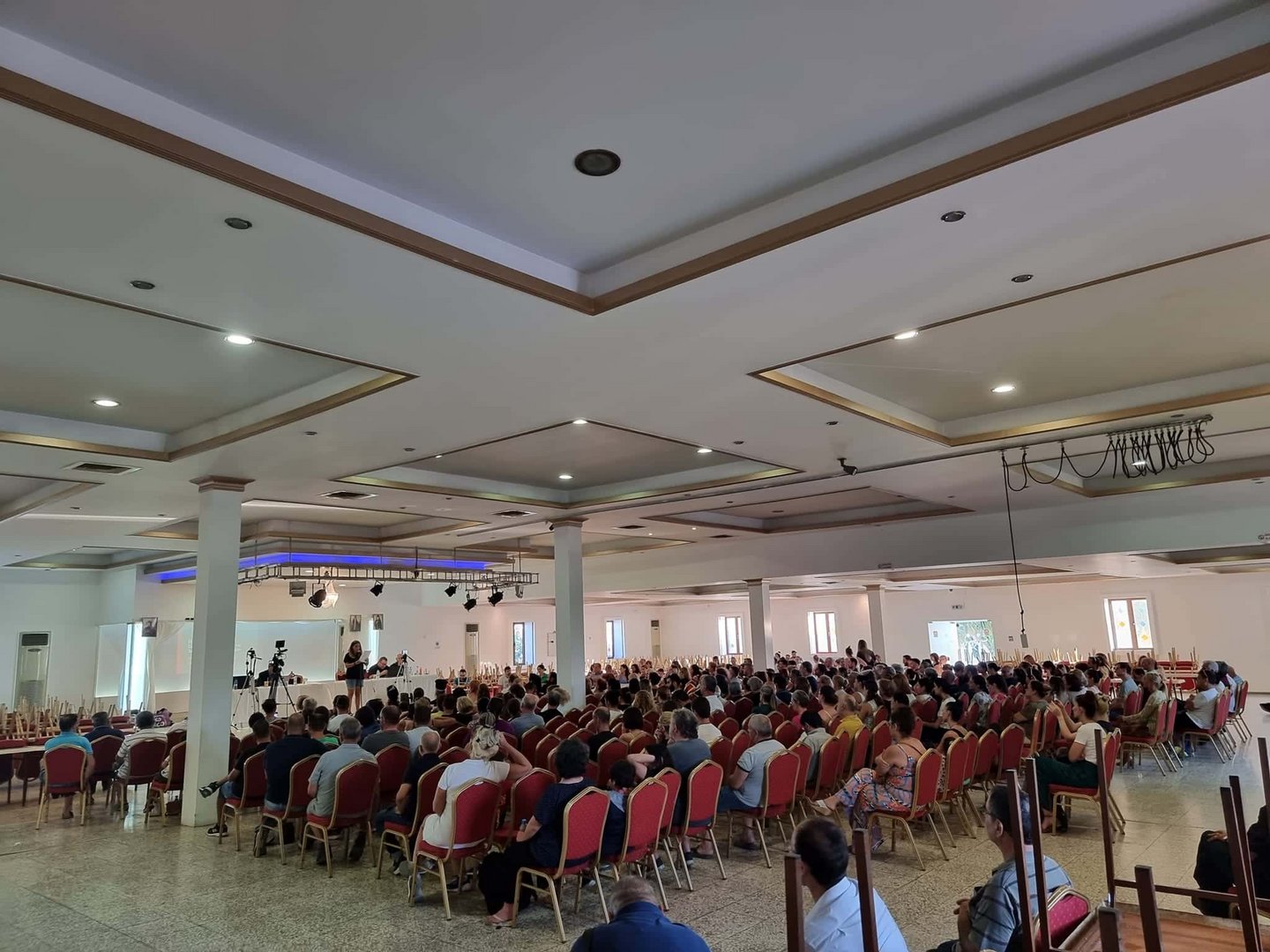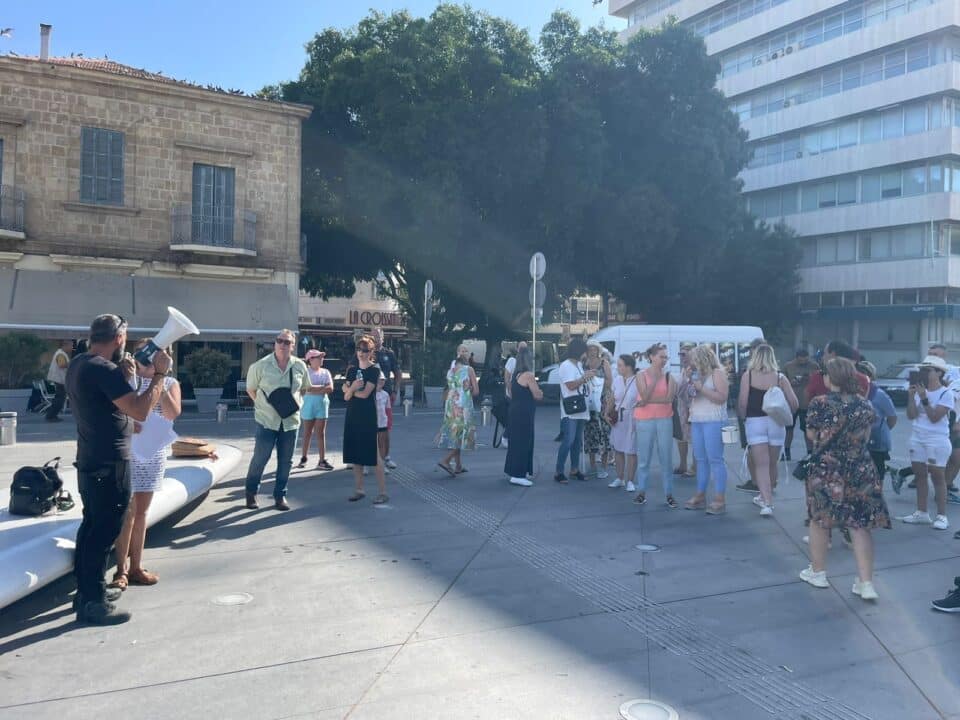State schools are ready to offer the sex education classes that have sparked outrage and protests by a small group of parents urged on by their most outspoken critic, far-right independent deputy Andreas Themistocleous.
The law, approved at the end of last year and signed by the president, despite his written reservations about its constitutionality, comes into effect on September 1 in time for the start of the new school year. It stipulates that sex education will have to be provided “at all levels and all classes” of both private and public schools.
Opposition to the law has come from Themistocleous and mainly religious parents, who fear it would open the way for promotion of “gender fluidity” and undermine traditional family values and the Christian faith. During a debate in the legislature Themistocleous had said, “they will teach kids that there are 64 genders” so that “Kostakis who was born a boy, then became a Marigoulla.”
Parents, calling themselves the Pancyprian Protest team, held a poorly attended protest in Nicosia’s Eleftheria square at the end of July, expressing their objections to their children being taught about masturbation and that “gay couples should be allowed to adopt and have families”.
Then there was a letter sent to the education minister, House president, House education committee and party leaders, at the end of last month, by a group calling itself the Citizens’ Initiative Group. It was reportedly signed by 400 people, including doctors, lawyers, teachers, psychologists, theologians, business people and young couples.
Having gone through the subjects listed on the education ministry website, the Initiative Group wrote that it found many “references to issues of sexual health” as “unsuitable for the age of the children and generally dangerous for processing in the classroom”.
“Issues regarding masturbation, disputing gender stereotypes, deconstruction of the nuclear family, and references to alternative types of families, difference between biological and social gender, varied sexual orientations, transgender identity cause us great distress and insecurity,” the letter added.
A better-attended protest was held indoors in Chlorakas in Paphos in August organised by a fundamentalist Christian group calling itself Soldiers of Orthodoxy, which uses its Facebook page to campaign against the introduction of sex education.
The Soldiers of Orthodoxy page concedes that sex education has been part of the curriculum both at primary schools and gymnasiums since 2010. It was not part of the lyceum curriculum, but from September it will also be taught there in line with the new law – six periods of lectures will be provided in the school year.
Nobody had protested about the sex education in all these years, but the objections were raised by the 2022 ‘law which provides for holistic sex education’, which came into being by default.
It all started with the demand of a children’s rights protection group seeking a law that would allow teachers to help children that were victims of abuse or violence, by speaking to them and alerting the authorities. The education ministry then tried to draft a bill on the sexual abuse and exploitation of children, but the matter was taken over by deputies from the House human rights committee who wanted to broaden its scope.
This resulted in the holistic sex education law which envisages “the teaching and learning, based on the curriculum, in relation to the gnostic, emotional, physical and social aspects of sexuality, and aims to equip the child or adult, attending primary and secondary school, public or private, with knowledge, skills, attitudes and values that would strengthen them, so that they are aware that their choices affect their own welfare and the welfare of others, to understand their rights and seek their safeguarding…. Understand and enjoy their sexuality with responsibility, safety and consensus…..”
The law was seen as leaving the way open for the promotion of alternative sexual preferences to the traditional. Opponents of the law believe the provision of the law, which said the relevant authority and agencies involved would “implement training programmes and enlightenment lectures” based on the guidelines of the World Health Organisation (WHO) and Unesco “on the basis of the teaching of human rights” was for this purpose.
Their worry is that WHO guidelines could introduce issues of gender identity and gender fluidity, as could conventions of the Council of Europe that the Cyprus Republic has ratified and are listed in the introduction of the law.
“These references and obligations are indirect,” said an education ministry source. “They are placed in the introduction by deputies to give weight, but it does not mean at all they would be adopted or implemented.”
A concerned parent, who does not belong to the religious groups, told the Sunday Mail, that “we cannot possibly trust WHO, which showed during the pandemic its tendency to impose its diktats on the world.”
He felt that it was up to the minister of education to reassure parents that the ministry would not introduce WHO and Unesco guidelines at school. “The education ministry must come out and state quite clearly that there is no intention to teach or promote gender identity as part of sex education.”
The education ministry has organised a seminar on “Disputing the existing ‘standard’”, which had as its themes the following: “the diversity and/or uniqueness of every person is encouraged positively, becomes accepted and is ratified;” and “An effort to fight gender stereotypes.”
Such plans are unlikely to reassure the opponents of the law, who are a very small proportion of the population, even though they are making a lot of noise. And although they claim to have the support of many deputies, only Themistocleous and members of Elam have spoken publicly against the law.
Themistocleous has become the spokesman of the group, having challenged the education minister to a TV debate about the matter so that parents can hear both sides.
“All the vileness, deviousness, obscenity of this lesson, as it has been shaped, on no account can be covered up or hidden inside the alleged effort for the self-protection of students,” said Themistocleous in a post on social media.








Click here to change your cookie preferences